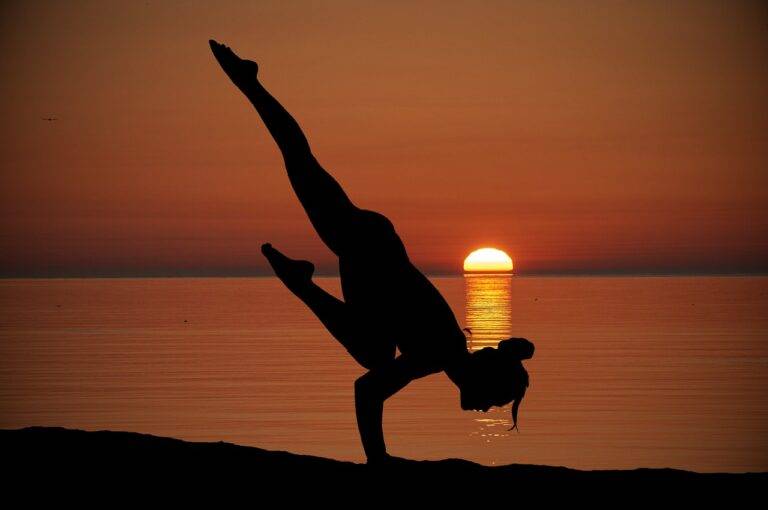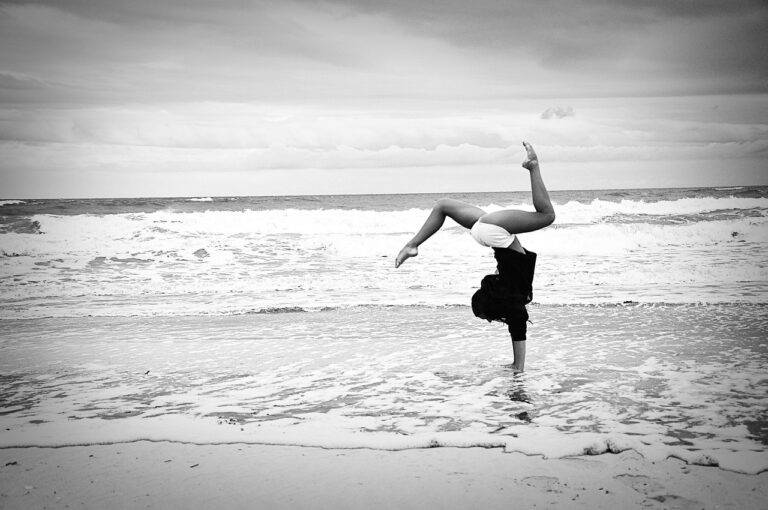Pilates for Better Balance: Enhancing Stability and Coordination
11xplay, gold365.win, skyexchange registration:Pilates for Better Balance: Enhancing Stability and Coordination
Do you ever feel unsteady on your feet or struggle with maintaining your balance? If so, incorporating Pilates into your fitness routine could be the key to improving your stability and coordination. Pilates is a low-impact exercise that focuses on strengthening the core muscles, improving flexibility, and enhancing overall body awareness. In this article, we will explore how Pilates can help you achieve better balance and coordination through a series of targeted exercises and movements.
The Importance of Balance and Coordination
Balance and coordination are crucial components of everyday life. Whether you’re walking, running, or engaging in sports and recreational activities, having good balance and coordination can help prevent falls, injuries, and accidents. As we age, our balance and coordination tend to decline, making us more susceptible to slips and trips. By incorporating Pilates into your fitness routine, you can enhance your stability, improve your posture, and move more efficiently.
How Pilates Can Improve Balance and Coordination
Pilates focuses on strengthening the core muscles, which include the muscles of the abdomen, lower back, and pelvis. A strong core is essential for maintaining balance and stability, as it supports the spine and helps you maintain proper alignment. By targeting the core muscles through specific Pilates exercises, you can improve your posture, enhance your stability, and move with greater control and coordination.
In addition to core strengthening, Pilates also emphasizes flexibility, joint mobility, and body awareness. By incorporating stretching and lengthening exercises into your Pilates routine, you can improve your range of motion, reduce muscle tension, and move more freely. Increased flexibility and joint mobility can help prevent stiffness and improve your overall coordination, allowing you to perform daily activities with ease and grace.
Pilates Exercises for Better Balance
There are several Pilates exercises that can help improve your balance and coordination. Some of these exercises include:
1. The Hundred: Lie on your back with your legs lifted and extended, arms reaching forward. Pump your arms up and down as you breathe in and out, engaging your core and stabilizing your body.
2. Single Leg Stretch: Lie on your back with your knees pulled towards your chest. Extend one leg while keeping the other knee bent. Alternate legs in a cycling motion, engaging your core and stabilizing your hips.
3. Side Leg Lifts: Lie on your side with your legs extended, and lift your top leg towards the ceiling. Lower your leg back down with control, engaging your core and stabilizing your body.
4. Swan Dive: Lie on your stomach with your arms reaching forward. Lift your chest and arms off the ground, engaging your back muscles and improving your posture.
5. Teaser: Sit on the mat with your knees bent and feet flat on the ground. Lift your legs and torso off the ground, balancing on your sit bones and engaging your core muscles.
By incorporating these Pilates exercises into your fitness routine, you can enhance your stability, improve your balance, and increase your coordination. Remember to focus on proper form, core engagement, and controlled movements to maximize the benefits of each exercise.
Benefits of Pilates for Balance and Coordination
In addition to improving balance and coordination, Pilates offers a multitude of other benefits, including:
1. Enhanced core strength: Pilates targets the deep core muscles, which are essential for stability and support.
2. Improved posture: Pilates helps align the spine, strengthen the back muscles, and correct muscle imbalances, leading to better posture.
3. Increased flexibility: Pilates incorporates stretching and lengthening exercises that improve flexibility and joint mobility.
4. Better body awareness: Pilates focuses on mind-body connection, helping you become more aware of your movements and alignment.
5. Reduced risk of injury: By strengthening the core muscles, improving flexibility, and enhancing body awareness, Pilates can help prevent injuries and falls.
FAQs about Pilates for Balance and Coordination
1. Can Pilates help with vertigo and dizziness?
Yes, Pilates can be beneficial for individuals dealing with vertigo and dizziness. Pilates exercises that focus on improving balance, stability, and coordination can help alleviate symptoms of vertigo and enhance overall equilibrium.
2. How often should I practice Pilates for better balance?
It’s recommended to practice Pilates at least 2-3 times per week to see significant improvements in balance and coordination. Consistency is key when it comes to reaping the benefits of Pilates for better balance.
3. Is Pilates suitable for seniors?
Yes, Pilates is a safe and effective exercise for individuals of all ages, including seniors. Pilates can help improve strength, flexibility, and balance, making it an excellent choice for older adults looking to maintain their physical health and well-being.
4. Can Pilates help with postural issues?
Yes, Pilates can be highly effective in addressing postural issues such as rounded shoulders, forward head posture, and swayback. Pilates exercises that focus on core strengthening, spinal alignment, and shoulder stability can help correct postural imbalances and improve overall posture.
In conclusion, Pilates is a fantastic way to enhance your stability, improve your balance, and increase your coordination. By incorporating Pilates exercises into your fitness routine, you can strengthen your core, improve your posture, and move with greater control and efficiency. Whether you’re a beginner or a seasoned Pilates practitioner, focusing on proper form, core engagement, and controlled movements will help you maximize the benefits of each exercise. So why wait? Start incorporating Pilates into your workout routine today and experience the transformative effects it can have on your balance and coordination.







